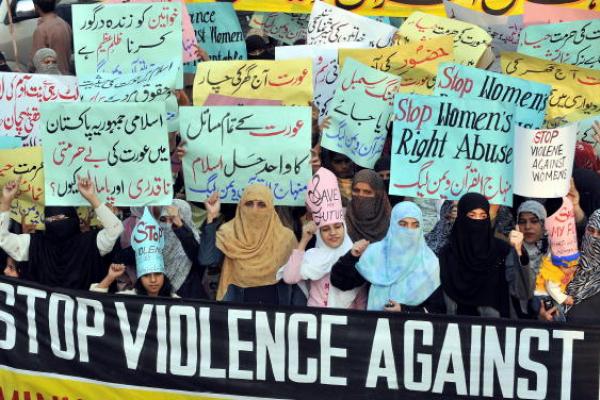The recent conviction in Canada of Afghani-Canadian parents and son, in the highly-publicized legal case hinging on what has been described broadly as “honor killings,” has exposed the horrifically demented practice to public scrutiny.
Though the three defendants — Mohammad Shafia, his wife and son — denied responsibility for the death of Shafia’s three daughters and first-wife, the Canadian court decided otherwise.
Recordings presented during the trial included wiretaps in which Shafia called his dead daughters “treacherous” and “whores” because they dated boys and wore what Shafia considered to be suggestive clothing. When the verdict was announced, Ontario Superior Judge Robert Maranger determined that the murders of the four women —ages 13, 17, 19 and 52 — were, in fact, motivated by warped (some might say, rightly, “sociopathic”)ideology. As he ruled, Maranger said:
"It is difficult to conceive of a more despicable, more heinous crime. The apparent reason behind these cold-blooded, shameful murders was that the four completely innocent victims offended your completely twisted concept of honor.”
Mohammed Shafia’s distorted concept of honor is one that is shared by far too many around the globe. It says that the murder of women and girls — those ones who don’t play by the family rules — restores the honor the family has been deprived of by virtue of its female members’ behavior.
Alleged “offenses” by women and girls can include dating someone the family disapproves of, refusing to enter into an arranged marriage, divorcing, or even, as in this case, dressing in a manner deemed “provocative” or immodest.
The United Nations Population Fund estimates that as many as 5,000 women and girls are killed annually by their families in so-called “honor killings.”
Purposefully or inadvertently, in his sentencing of the Shafias, Maranger didn’t use the phrase “honor killing.” I’d like to believe it was purposeful.
I’ve noticed that when online and print journalists refer to the heinous practice in their reports, each one consistently brackets the oxymoronic pairing of “honor” with “killing” in inky black quotation marks. News reporters, when describing the madness, lower their voices a little bit as the words pass their lips. Whether consciously or in their deeper places, these professional communicators know that the juxtaposition of those two words is inherently dangerous.
The Shafias’ trial and sentencing, which has shined a spotlight on the brutal practice, has been a bit of an Emperor’s New Clothes situation: Most of us villagers are nodding our heads in agreement that, by golly, it sure seems like these were “honor killings.” But nobody is jumping up and down screaming, “THERE IS NO SUCH THING AS AN HONOR KILLING!” And dammit, someone should be.
Taking the life of a family member whose behavior you disapprove of is never honorable because killing never restores honor.
It’s time for this oxymoronic reference to become as distasteful in our mouths as many of the other destructive words to which we’ve gradually bid adieu over the years. And though this case has brought both the act and the language that describes it to the fore, what matters most, in the end, is not the language at all.
Thirteen-year-old Geeti matters. And 17-year-old Sahar. The life of Zainab, who was 19, matters. And the life of 52-year-old Rona Amir was equally precious.
I’ll jump up and down and scream it, “These girls and women weren’t the victims of honor killings!”
Unlike the Shafias’ defense strategy, saying so does not deny what happened to four innocent victims. Rather, it more faithfully recognizes, announces and grieves what actually did happen.
For Geeti and Sahar and Zainab and Rona, can we all agree, please, not to call their murders “h#$@r k*$&%#gs” anymore?
Margot Starbuck, the author, most recently, of Small Things With Great Love: Adventures in Loving Your Neighbor, is itchy to live a Jesus-propelled life of love, especially among those on the world's margins. Which only rarely requires the screaming. Read more from Margot on her blog, MargotStarbuck.com.
Got something to say about what you're reading? We value your feedback!
